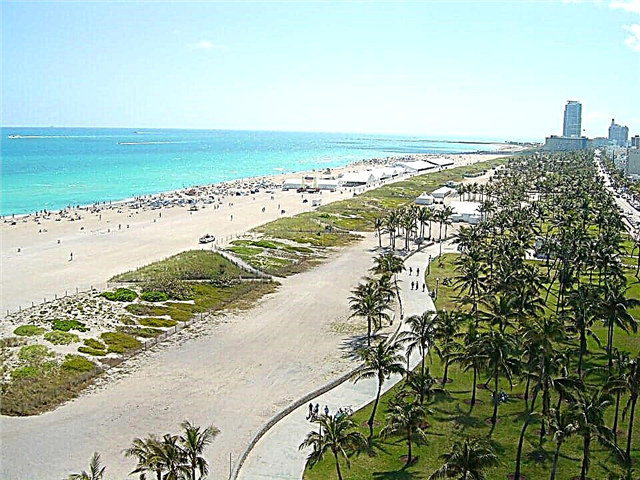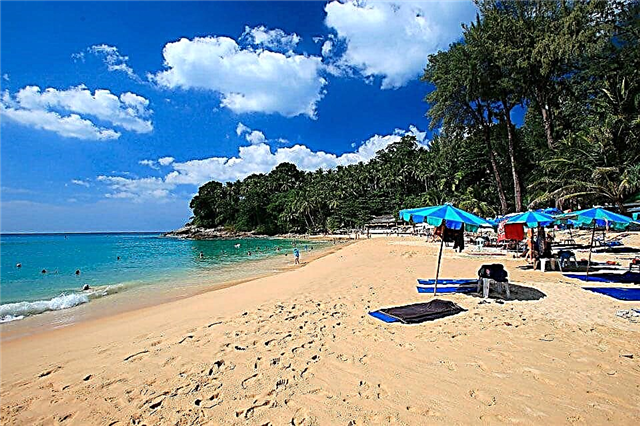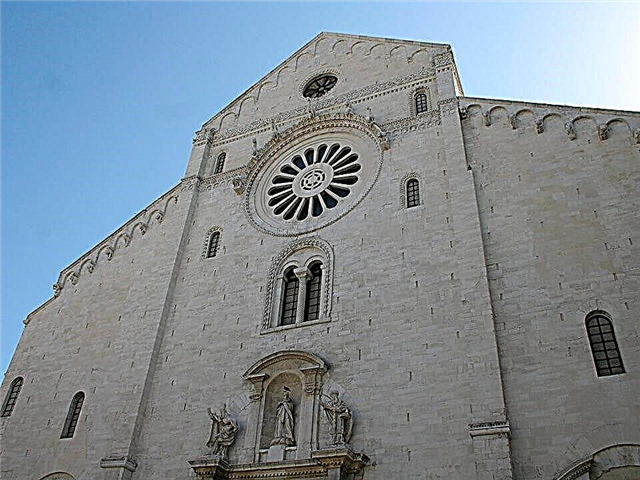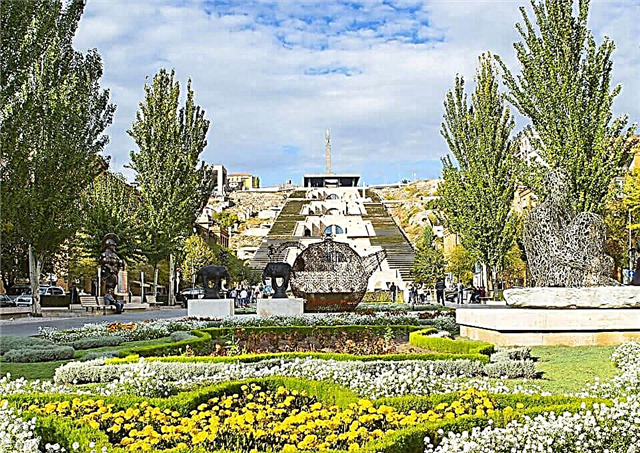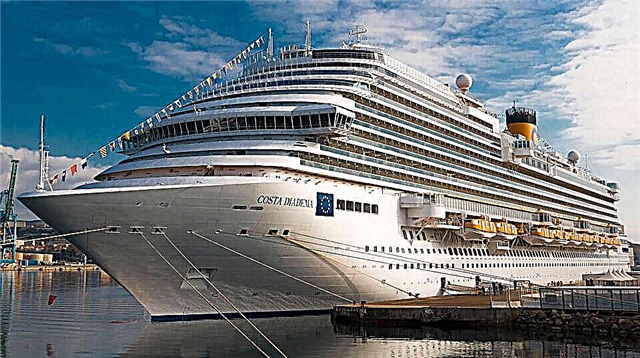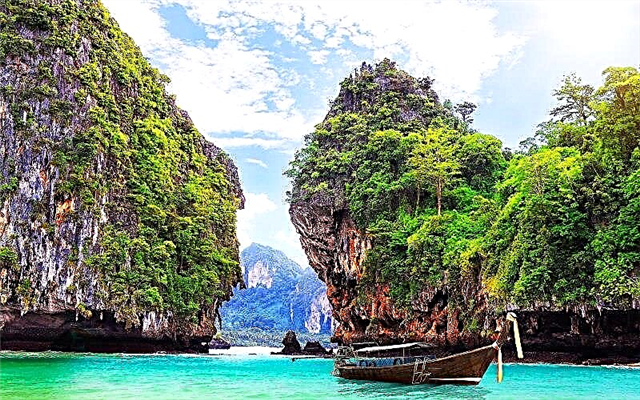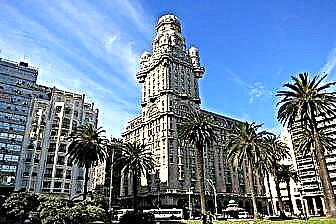The Eastern Republic of Uruguay is a small hospitable state in South America. The best time to visit this country is from January to April. Tourists from all over the world are attracted by the natural wealth and architectural heritage of Uruguay.
There are many resorts on the Uruguayan coast of the Atlantic Ocean, the most famous of which is Punta del Este. For lovers of active leisure, the cities of Carmelo or Mercedes are suitable. Here you can go sea fishing, yachting or surfing. Fans of urban tourism will be interested to get acquainted with the architectural monuments of Colonia del Sacramento and the capital of the country, Montevideo.
The unique island of Lobos, as well as the natural parks of Uruguay, will acquaint tourists with their amazing flora and fauna. The local cuisine combines the culinary habits of Europeans and South Americans. Uruguay's signature dishes are grilled beef and pork. A kind of tea called "mate" is very popular here, which is drunk from special vessels through a straw. Excellent wine is also produced in Uruguay.

The best hotels and hotels at affordable prices.
from 500 rubles / day
What to see in Uruguay?
The most interesting and beautiful places, photos and a short description.
City of Montevideo
The capital of the state, the city of Montevideo, begins its turbulent history in 1726, when the fortress of the same name was founded by the Spaniards. The old part of the city, the massive development of which took place in the 18th - early 19th centuries, keeps interesting architectural monuments: the cathedral, the fortress, the theater, the parliament building and the New Town Hall. The chic suburb of Montevideo is visited by lovers of beach-resort recreation.

Executive tower
The official residence of the President of Uruguay is located on Independence Square in the capital of the country. The construction of this structure with the original name: "The Executive Tower" began in 1965, but stormy historical events prevented the completion of the work on time. Only in 2009, the president's office was moved to this building.

Cathedral of Montevideo
In the historic part of Montevideo, there is the Cathedral of the Immaculate Conception of the Blessed Virgin Mary and Saints Philip and James, better known as the Cathedral. The foundation of the building was laid in 1790. Built in the neoclassical colonial style, the cathedral is now a National Historic Landmark of Uruguay.

Rio Negro River (tributary of Uruguay)
A large river, originating in the south of Brazil, divides the territory of Uruguay into northern and southern parts. Power plants and reservoirs are located on the Rio Negro, one of which, Rincon del Boneta, is considered the largest reservoir in South America.

Palacio Salvo
One of the main attractions of the capital of Uruguay is the Palacio Salvo skyscraper, built to order for the Salvo brothers based on Dante Alighieri's Divine Comedy. Palacio Salvo combines neo-Gothic, Art Deco eclecticism and neoclassicism, and the structure and decoration of the building have direct references to the work of Alighieri.

Solis theater
One of the oldest theaters in Uruguay, built in 1856, is the Solis Theater. The theater building is located in the old town of Montevideo and is currently used for ballet and opera performances. The last reconstruction of the theater was carried out in order to preserve the classical style of the building and was completed in 2004.

Colonia del Sacramento city
The Portuguese founded the city in 1680, but a few months later it was captured by the Spaniards. Subsequently, Colonia del Sacramento changed hands many times. Today it is a popular tourist attraction, which attracts lovers of archaeological sites to see the historical part of the city.

Independence Square, Montevideo
Independence Square is located between the Old and New Towns in Montevideo. In the very center of the square there is a monument to the famous Uruguayan figure Jose Artigas and a museum dedicated to his life. You can also see the Salvo Palace, the Solis Theater, the Estevez Palace, and the Executive Tower.

Plaza de la Constitucion
The center of the historic part of Montevideo is the Plaza de la Constitucion. Previously, this place was called Plaza Matriz, and bullfights, fairs and various celebrations were held here. The square received its current name in honor of the adoption of the Constitution of Uruguay in 1830. At the end of the 19th century, the Plaza de la Constitucion was decorated with a beautiful fountain.

Estevez Palace
The Esteves Palace, built in 1873, is located on Independence Square in the capital of the country. Initially, this building belonged to Francisco Estevez, and in 1880 it was bought by the government of Uruguay. For a long time, the building was used as a presidential residence, then a museum of presidential gifts was created here, and since 2009, the remains of the national hero Jose Artigas have been kept in the Estevez Palace.

Lobos Island
On the southern coast of Uruguay is the unique island of Lobos, famous for its colony of southern sea lions. One-day excursions regularly run here, and surfers and diving lovers also come to train. The island is considered a natural reserve in Uruguay.

Punta del Este resort
Founded in 1907, the resort town of Punta del Este is one of the most picturesque places in Uruguay. Fans of beach holidays, surfing and windsurfing are in a hurry here. The most popular places in Punta del Este - Montoya, El Tesoro, Bikini Beach - are distinguished by clear water and white sand. At night, tourists are entertained by clubs, discos and casinos.

Centenario stadium
The largest stadium in Uruguay is located in the capital city of Montevideo. It was built specifically for the 1930 championship. Today, the Centenario is used for various international matches, including for meetings in the South American Championship - the oldest international tournament that continues to this day.

National Museum of Fine Arts
Located in Montevideo, the National Museum of Fine Arts was established in 1911 and consists of five exhibition halls. The works of Uruguayan artists are widely represented here, as well as some works of foreign masters. In total, the museum's exposition numbers over 6 thousand works of art.

Juan Manuel Blanes Fine Arts Museum
In 1930, the Juan Manuel Blanes Museum of Fine Arts was founded in the Prado Park of Montevideo. The building that houses the museum is the luxuriously decorated 1870 Palladian Villa, recognized as a National Landmark in 1975. The main exhibits of the museum are works of art by Uruguayan masters.

Hand of Punta del Este
The famous sculpture by Mario Irarrazabal appeared on the beach of Punta del Este in 1982 as part of an international meeting of contemporary sculptors. This original structure, as conceived by the author, should serve as a warning to swimmers resting nearby. The sculpture is made of cement and is about 3 meters high.

Parliament building Montevideo
In 1904, construction began on the building that houses the Uruguayan Parliament. The grand opening of the building took place in 1925, and in 1975 the parliament building was ranked as a National Historic Site. Today, most of the premises are available for inspection by everyone. Photo and video filming is also allowed in the parliament building.

Cabo Polonio National Park
A small fishing village gave its name to one of Uruguay's national parks.Cabo Polonio Park includes marine and terrestrial ecosystems as well as islands. A colony of sea lions can be seen near the village. Tourists usually move around the territory of the national park on foot or in a rented jeep.


